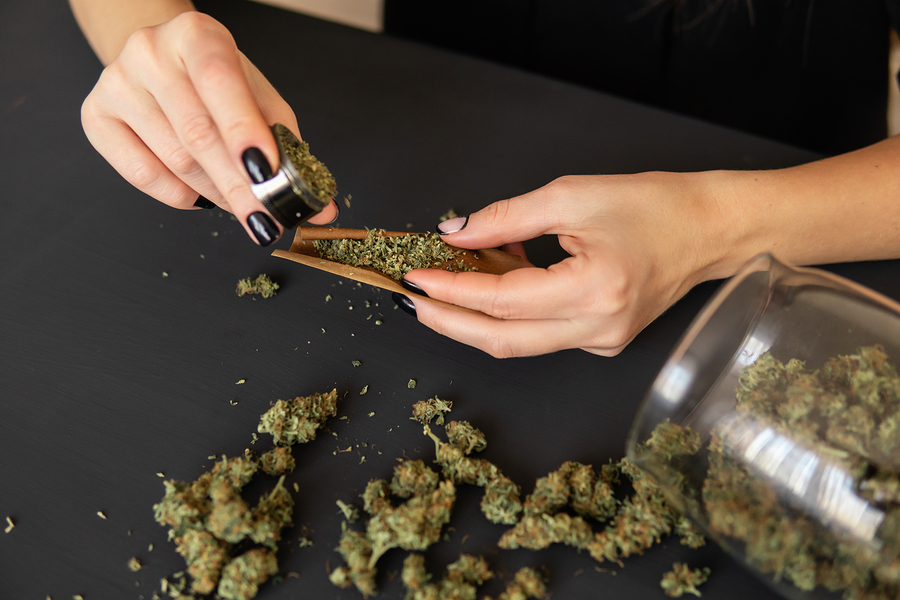Texas state laws relating to marijuana, hemp, and CBD are complicated and have gone through recent and significant changes. While some states have taken steps to decriminalize, marijuana is still illegal in Texas. However, recently Texas has decriminalized hemp and medical marijuana in limited situations. Read below to learn the differences between hemp, marijuana, CBD, and what is currently legal and illegal in Texas.

What is the Difference Between Hemp, Marijuana, and CBD?
The difference between hemp, marijuana, and CBD causes a lot of confusion. Both marijuana and hemp are cannabis plants that share certain traits, but they are not the same.
- What is Marijuana?
Marijuana is a cannabis plant or it’s derivative with a tetrahydrocannabinol (THC) concentration of more than 0.3%. THC is a psychoactive chemical compound unique to cannabis. Marijuana is used primarily as a recreational drug that is smoked, vaporized, or ingested. It may also be used for medicinal purposes.
- What is Hemp?
Hemp is a cannabis plant or its derivative with a THC concentration of less than 0.3%. It carries a high concentration of the non-psychoactive chemical compound cannabidiol (CBD). Hemp is used to making a variety of products, including food, cosmetics, clothing, fuel, paper, building materials, and CBD oil.
- What is CBD?
CBD is a naturally occurring chemical compound found in cannabis plants. In contrast to THC, it is non-psychoactive. There is both hemp-derived CBD and marijuana-derived CBD. Marijuana-derived CBD also contains high levels of THC. The most common forms of CBD are oils, creams, pills, and edibles.
Many individuals and companies have made health claims about the benefits of CBD, including that it can help relieve anxiety, depression, inflammation, and insomnia. However, the FDA has only approved one CBD product to treat two rare, severe forms of epilepsy.
What is Legal in Texas?
- Is Hemp Legal in Texas?
In June 2019, Texas legalized the production, manufacture, inspection, and retail sale of hemp crops and products when Governor Gregg Abbott signed House Bill 1325 into law. Businesses selling hemp must be licensed and registered with the state’s health department.
Also, all businesses or individuals that grow hemp must be licensed and permitted for each location. It is necessary to have a license even if you are only growing hemp on a small scale in your home. The hemp must be tested to ensure that the plant is below the 0.3% THC level. There are restrictions on who is permitted to grow hemp legally. You cannot have managerial control of an entity that cultivates, handles, or stores hemp in Texas if you had a felony conviction involving a drug offense in the last ten years.
- Is Marijuana Legal in Texas?
Marijuana is illegal in Texas. The most common marijuana crimes in Texas include:
- Marijuana possession,
- Marijuana distribution,
- Growing/cultivating marijuana, and
- Marijuana trafficking.
If you have been arrested for a marijuana-related offense, you should immediately reach out to an experienced criminal defense attorney. A conviction can result in severe consequences such as jail time and fines.
The recent legalization of hemp has resulted in some prosecutors moving away from pursuing criminal charges against individuals carrying a small amount of marijuana because state labs do not have the resources to detect a substance’s exact THC content. Many Texas law enforcement agencies have instead implemented cite-and-release policies for low-level marijuana charges.
Under the Texas Compassionate Use Act passed in 2015, there are exceptions for medical cannabis with a maximum THC concentration of 0.5% in limited circumstances such as epilepsy, multiple sclerosis, Parkinson’s disease, and ALS. Texas’ medical cannabis law is very restrictive as compared to other states.
- Is CBD Legal in Texas?
Whether or not a CBD product is legal in Texas depends on its THC concentration. Hemp-derived CBD with a THC level below 0.3% is legal. However, Marijuana-derived CBD with a THC level greater than 0.3% is illegal. The regulation of CBD consumables (including oil) is handled in accordance with FDA guidelines. On the state level, The Texas Department of State and Health services oversees CBD consumables.
Speak to an Experienced Frisco Attorney
If you or someone you know is facing marijuana charges, you should immediately reach out to a local Frisco criminal defense attorney. Philip D. Ray is an experienced criminal attorney and former prosecutor who will provide you with a skilled and aggressive defense. He has years of experience defending individuals against marijuana charges in the Dallas-Fort Worth area. Call The Law Offices of Philip D. Ray today at (469) 588-6770 for a consultation.
